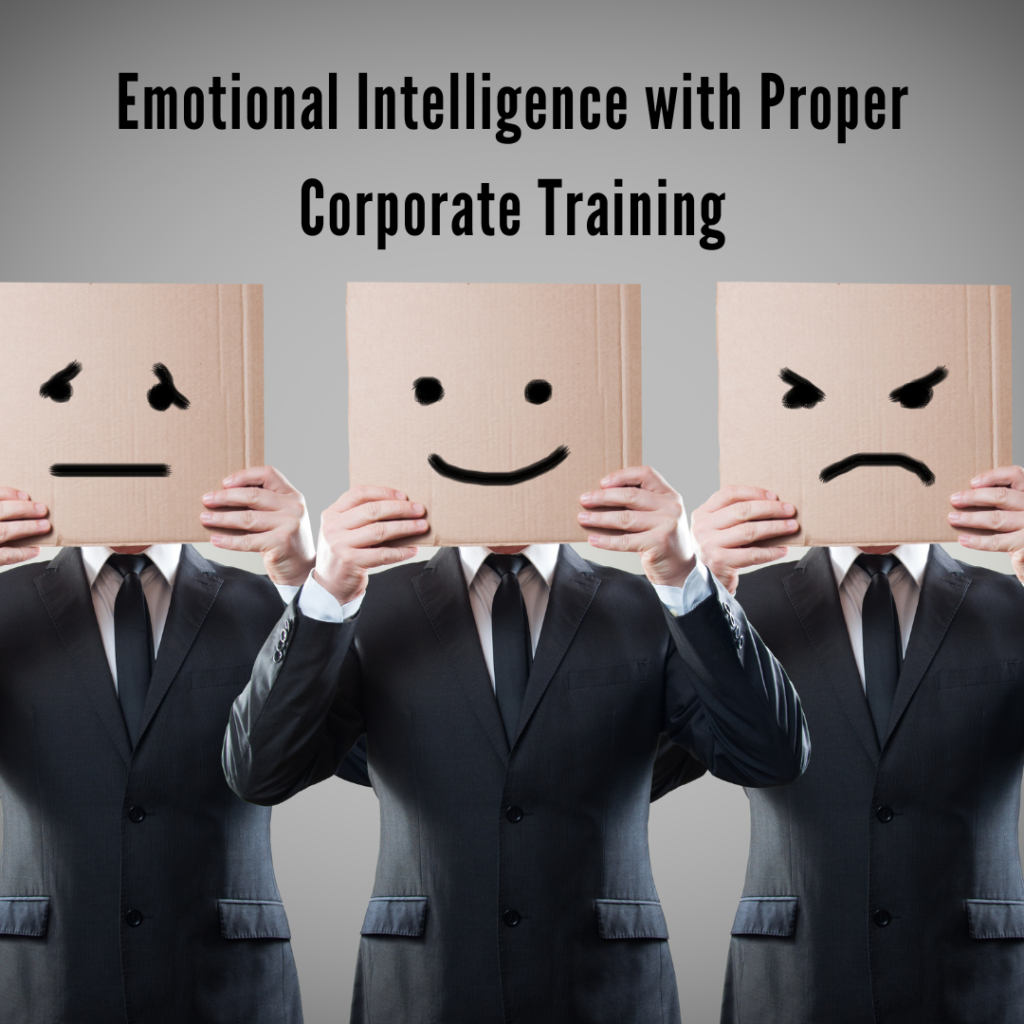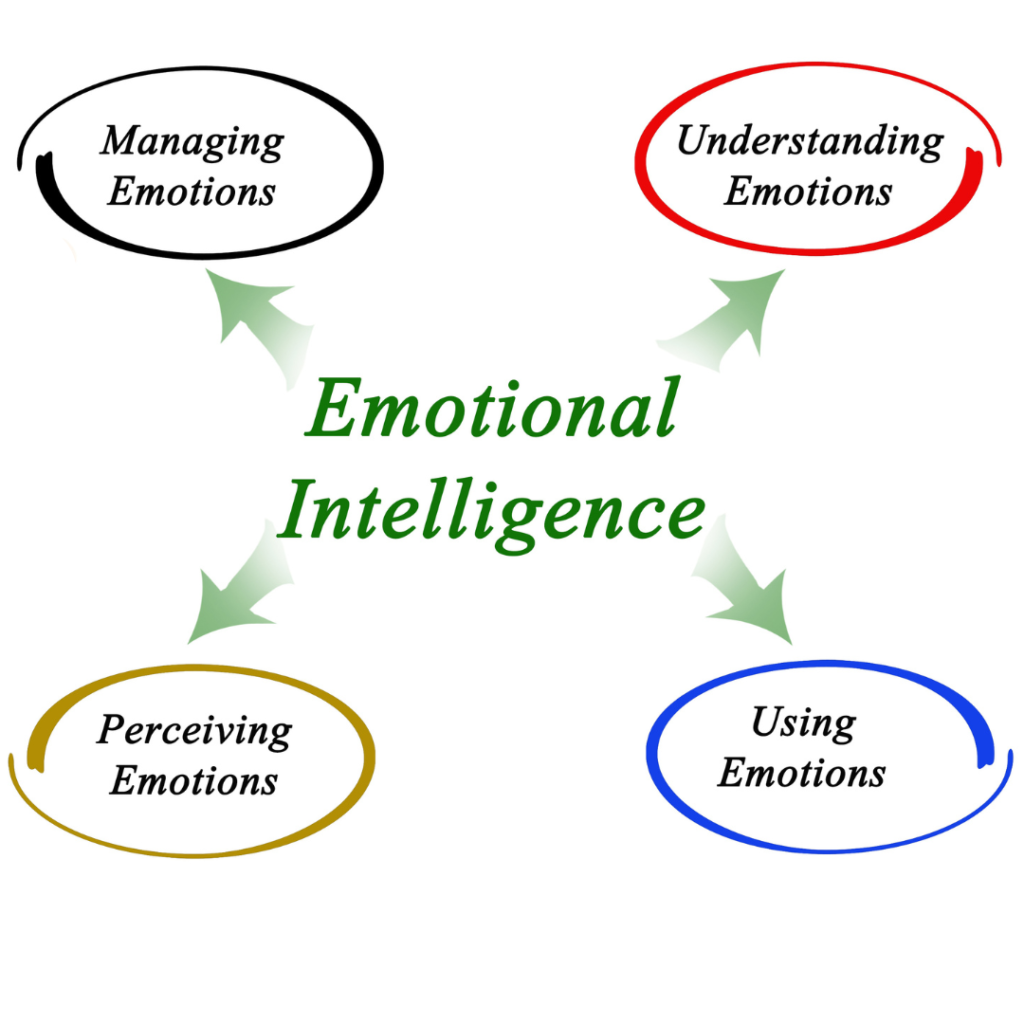Fathom the Dynamics of Emotional Intelligence with Proper Corporate Training
In today’s fast-paced and interconnected world, success is no longer solely determined by technical skills or academic qualifications. Instead, the ability to navigate complex interpersonal dynamics, communicate effectively, and lead with empathy sets individuals and organizations apart.
In the ever-evolving landscape of the modern workplace, the concepts of Emotional Intelligence (EI) and Emotional Quotient (EQ) have emerged as critical determinants of individual and organizational success. While often used interchangeably, they possess distinct nuances that merit exploration. Understanding the importance of cultivating these attributes and the necessity for workplace training can significantly enhance productivity, collaboration, and overall performance.

Deciphering the Dichotomy: Emotional Intelligence vs. Emotional Quotient
Emotional Intelligence (EI) encompasses a broad spectrum of skills, including self-awareness, self-regulation, empathy, and relationship management. It revolves around recognizing and understanding one’s own emotions, as well as those of others, and utilizing this awareness to navigate social interactions effectively. On the other hand, Emotional Quotient (EQ) refers to a numerical measure of an individual’s emotional intelligence, typically assessed through standardized tests. While EI encompasses the qualitative aspects of emotional awareness and management, EQ quantifies these attributes into a numerical score.
The Importance of EI and EQ Training in the Workplace:
Emotional intelligence is the cornerstone of success in the modern workplace. It encompasses a range of skills, including self-awareness, self-regulation, empathy, and social skills, that enable individuals to understand and manage their emotions effectively while navigating diverse social interactions. In today’s highly competitive and rapidly evolving business environment, the importance of emotional intelligence in the workplace cannot be overstated. It is the driving force behind effective leadership, conflict management, and interpersonal communication, laying the foundation for organizational excellence and sustainable growth.
In today’s interconnected and fast-paced corporate environment, the significance of EI and EQ cannot be overstated. Organizations that prioritize EI and EQ training reap multifaceted benefits, including improved communication, enhanced leadership capabilities, and heightened employee engagement. By fostering a culture that values emotional intelligence, companies can cultivate a more inclusive, resilient, and productive workforce.
The Need for Emotional Intelligence Training
As the demand for emotional intelligence continues to grow, so too does the need for specialized training programs that equip individuals with the necessary skills to thrive personally and professionally. Corporate training initiatives that prioritize emotional intelligence training empower employees with the tools and techniques needed to navigate the complexities in the organization with confidence and competence. From leadership development to conflict resolution and interpersonal communication, emotional intelligence training provides a solid framework for success in every aspect of professional life.
Dispelling Misconceptions
Despite its undeniable importance, emotional intelligence is often misunderstood or overlooked in corporate training initiatives. Some may dismiss it as a soft skill, erroneously equating it with weakness or sentimentality. However, nothing could be further from the truth. Emotional intelligence is a potent tool that empowers individuals to make sound decisions, build strong relationships, and inspire others to achieve their full potential. By dispelling misconceptions and recognizing the tangible benefits of emotional intelligence, organizations can harness its transformative power to drive performance and foster a positive workplace culture.

Nurturing Emotional Intelligence: Key Requirements and Strategies
1. Self-awareness: Encourage employees to engage in reflective practices, such as journaling or mindfulness exercises, to enhance self-awareness and emotional insight.
2. Self-regulation: Provide training on stress management techniques, such as deep breathing exercises or time management strategies, to help employees regulate their emotions effectively.
3. Empathy: Promote empathy through team-building activities, role-playing scenarios, and opportunities for perspective-taking and active listening.
4. Relationship Management: Offer workshops on conflict resolution, negotiation skills, and effective communication to equip employees with the tools to build and maintain positive relationships in the workplace.
The Ripple Effect of Emotional Intelligence
The ripple effect is palpable which results in soaring productivity, flourishing relationships, and a culture of emerging trust. The transformative power of EI ignites positive change and propels personal and professional growth. By recognizing the importance of EI in the workplace, dispelling misconceptions, and investing in specialized training initiatives, organizations can empower their employees to thrive in every aspect of their professional lives.
The cultivation of Emotional Intelligence and Emotional Quotient is essential for navigating the complexities of the modern workplace and fostering a culture of collaboration, innovation, and resilience. By prioritizing EI and EQ training, organizations can unlock the full potential of their employees, drive sustainable growth, and thrive in today’s competitive business landscape.
Let’s harness the power of emotional intelligence to unlock our full potential and create a brighter, more fulfilling future.





Leave a Reply